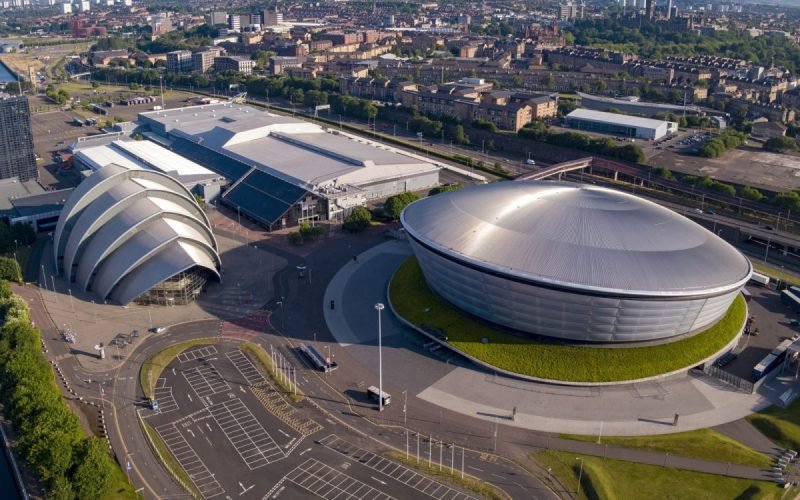Glasgows of the world

An otherwise silent person, Queen Elizabeth of England was caught on hot mic recently about the world leader’s lack of charm about addressing the climate crisis, she also expressed her surprise as many were yet to RSVP for the momentous COP26 summit which the UK is slated to host in Glasgow by the end of this month.
The Conference of Parties also called COP are a yearly occurrence ever since 1992, Earth Summit at Rio mainstreamed the climate crisis. The regular summits at the highest level ensured dialogue on an event that was to affect humanity in a way unheard. Some of the notable COP’s including Kyoto, Cancun, Copenhagen and the recent Paris in 2015 are reminiscent of both the world’s interest and concomitant disinterest in dealing with the climate crisis.
The last agreement called the Paris accord which based each nation’s commitment on their voluntary pledge was regarded by many as ‘half baked cake’. For its critics, the goals thence enunciated without any legal backing were all but pious aspirations, hollow new year promises which are broken the next day itself. India likes other nations put forward its INDC or intended nationally determined contribution that summarized its goals for the next five years. These included reducing the emissions intensity of its GDP by 33 to 35 per cent by 2030 from 2005 level, achieving about 40 per cent cumulative electric power installed capacity from non-fossil fuel-based energy resources by 2030, creating an additional carbon sink of 2.5 to 3 billion tons of CO2 equivalent through additional forest and tree cover by 2030 among others. The Paris Accord also created a five-year window for mobilization of finance in The Green Climate Fund (GCF), the world’s largest climate fund, mandated to support developing countries raising and realizing their Nationally Determined Contributions (NDC) ambitions towards low-emissions, climate-resilient pathways.

Then came 2020, The Covid-19 pandemic, a once in a century event that shook the foundations of the world as we know it -tattering the idea that rich and ‘sophisticated’ nations are better placed in event of a crisis. Covid-19 also the great equalizer affected rich-poor alike, devastating both the West and East, North and South in equal proportions. The pandemic also exposed the fragilities and limits of human existence and its quixotic dream of colonizing the planet for its own, the man-animal conflict exacerbated by deepened interaction has also paved the way for new pandemics in the future.
To top this, the Intergovernmental Panel on Climate Change (IPCC) in its recently published 6th assessment report had painted a grim picture about the future. With the emission of carbon dioxide highest in at least 2 million years, the world had already depleted 86% of its available carbon budget. The constant fear of sea-level rise, grim heatwaves and loss of biodiversity are some of the findings of the report that points to the simple conclusion unless something is done now, things might be irreversible. This brings Glasgow into play.
Host to COP26 after a pandemic-stricken year, Glasgow provides a unique opportunity to the world to avoid another ‘Copenhagen’ were back in 2008, a deal was put off due to resistance from the developing world at the last moment scuttling any chance of addressing the issue early on. With an accommodative and Climate Change believer administration in Washington, America is willing to provide the required leadership the world needs. The enthusiasm shown by The Biden administration and American policymakers is in sync with the needs of tomorrow and this COP26 can very well be the moment when Biden’s ‘America Is Back’ gains some real traction.

The developing world led by the ilk of India and China are already transitioning to greener technologies and unlike the last COP’s this time, the civil society is stronger and more vocal, the recent IPCC report provides the needed fillip to attenuate the outcome of Glasgow transitioning it towards a greener and cleaner future.
Although all is not well and done; President Joe Biden although being a climate enthusiast is stuck in his country with the legislation addressing climate change in Congress. It is all but certain the plan would be scuttled for lack of votes. The Brazilian leader, Bolsonaro, an avid climate change denier had gone on record to insist the burning of the Amazon rainforest, also called the lungs of the world is good for economics. Leaders in Mexico, South Africa are non-committal towards anything substantial. India on its part is unwilling and unrelenting to cede its carbon space so soon in the development trajectory. To add to the chagrin, President Xi Jinping won’t be attending the COP26 ipso facto putting a shabby show from China’s side at the summit.
So is everything lost already? While the dark clouds of status quo hang over Glasgow, there is a silver lining. A near-universal acceptance of climate change caused by humans, the transition to solar which more than anything is cheaper in the long run, diversification of oil-based economies in the gulf and the recent near-universal ratification of the Kigali amendment to Montreal protocol reemphasize that consensus is possible. The Paris accord came into being after almost dropping dead, with the right nudges and application of common but differentiated responsibilities. It was the last-minute gamble that paid off. Glasgow has a similar setup; the summit is happening in the backdrop of a fractured world with little or no consensus for cooperation. The issues of north-south, east-west still haunt the high table of diplomacy. The pandemic might’ve exposed our frailties but it had divided us further, the onus lies on the world leaders slated to meet in Glasgow later this month, what they’d play on. With an existential threat hovering above, the meet can tame it or exacerbate it. Only a universal and fundamental change can rid us of the travesty of tomorrow, the treacherous path could be smoothened or pricked with thorn, the leaders would decide what to make it from, consensus or differences.


















